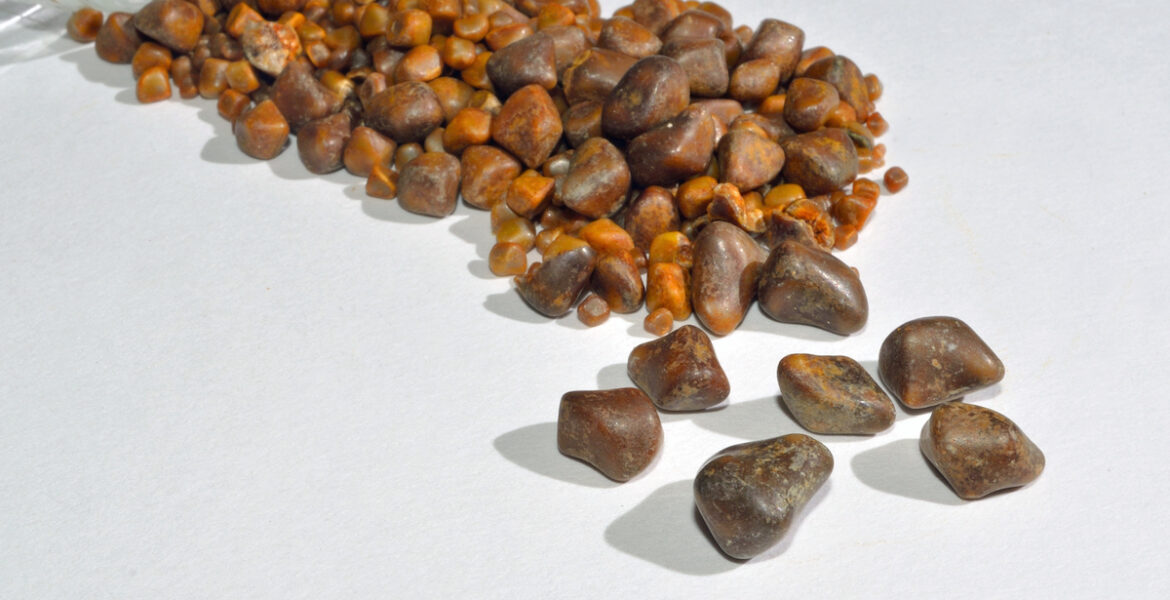Cholelithiasis, more commonly known as gallstones, can lead to serious complications. Therefore, it is important to schedule surgery at the right time, as Dr Alexandros Giakoustidis, a general surgeon specialising in liver, pancreatic, gastrointestinal oncology, and laparoscopic/robotic surgery, points out.
Cholelithiasis, or "gallstones," as we say informally, can lead to various serious complications. It is very important to plan surgery at the right time to avoid these possible complications that can worsen the patient's clinical condition.
How is cholelithiasis or gallstones defined?
The most common condition of the gallbladder is gallstones. Many people may have gallstones and not know it.
It is a condition that very often affects women, but of course, it also affects men. Other predisposing factors are age (the probability of occurrence increases in people over 40), sudden weight loss, and a diet rich in fats.
Cholelithiasis can include symptoms of biliary colic, namely abdominal pain, indigestion and nausea.
How are gallstones diagnosed?
The most usual and appropriate way is the ultrasound of the abdomen. In some cases, magnetic resonance imaging (MRCP) may also be necessary. A CT scan will show stones that are calcified, usually formed some time ago.
What are the complications of gallstones?
The presence of gallstones can lead to complications of inflammation, such as cholecystitis. In this case, antibiotic treatment is usually given, and the operation with the removal of the gallbladder is scheduled at a later date, except in cases of inflammation, where a cholecystectomy - the surgical removal of the gallbladder - is deemed necessary and urgent.
A major complication is pancreatitis, which causes inflammation of the pancreas. This can lead to a serious clinical condition and the possibility of a stone escaping into the bile duct (choledolithiasis).
What is the treatment for gallstones?
The removal of the gallbladder does not cause problems in food digestion since the bile passes directly into the duodenum, and there is no essential reason for its storage. The ideal treatment for cholelithiasis is surgery, laparoscopic cholecystectomy.
Under general anesthesia, the surgery involves small incisions in the abdomen so that the camera and instruments can be passed into the abdomen and the procedure can be performed.
With the technique of intradermal suturing of the incisions at the end of the operation, the desired cosmetic result is achieved so that there is no distinct scar. The operation can also be performed robotically, depending on the patient's preference.
What are biliary sludge and gallbladder polyps?
Sometimes, the imaging test shows "biliary sludge" instead of clear gallstones. Since this finding is accompanied by symptomatology—abdominal pain, nausea—further investigation is required to establish whether biliary sludge and perhaps accompanying micro lithiasis are responsible for the clinical symptomatology whenever the treatment is laparoscopic cholecystectomy.
Also, gallbladder polyps need close medical monitoring because they can develop into cancer. In the case of polyps, surgical removal of the gallbladder is recommended, according to international guidelines.
* Dr. Alexandros Giakoustidis is a General Surgeon specialising in liver, pancreatic, gastrointestinal oncology and laparoscopic/robotic surgery, Epp. Professor of Surgery at the 1st Surgical Clinic of AUTH, Papageorgiou Hospital and member of the Royal College of Surgeons of England (FRCS). Translated by Paul Antonopoulos.
READ MORE: Dementia: Multivitamins delay memory loss by two years.


